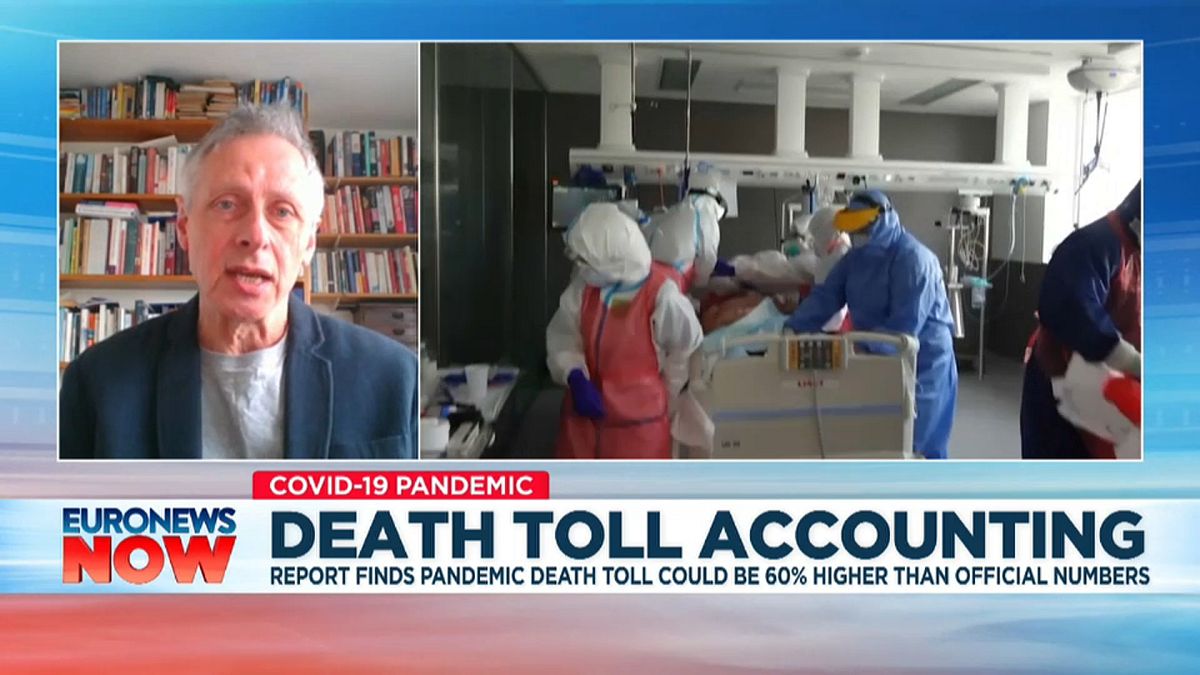Comparing countries on daily COVID-19 deaths is not the most accurate way of assessing performance, a professor has told Euronews.
Comparing overall deaths with past years is a better way of judging how well a country managed its COVID-19 crisis, it's been claimed.
Professor David Leon said assessing nations on daily COVID-19 hospital fatalities did not take into account deaths from the disease in the community, such as retirement homes.
It also doesn't measure people who have died as an indirect result of coronavirus, such as people who don't seek treatment for life-threatening conditions such as heart attacks over concern that hospitals are already full.
“If we want to make comparisons between countries in terms of the burden of death rates associated with COVID-19, we need to simply count the number of deaths that are occurring in the pandemic period and compare them with the deaths we would expect based on the years before the pandemic period,” Leon, Professor of Epidemiology at the London School of Hygiene & Tropical Medicine, told Euronews.
"This notion of excess deaths is actually the only really comparable way of looking at whether or not countries do better or worse in terms of what happened with COVID-19.
“Some of the deaths which may occur as the result of the pandemic are indirect deaths. They are things like people being very worried about going to their emergency department if they have a pain in their chest or they have weakness in one of their arms, both of which might indicate either a heart attack or a stroke, so there’s a lot of concern that people are not coming forward to be investigated and be treated for these potentially life-threatening conditions.”
But, he added, there might also be gains from the lockdown: for example a reduction in deaths from traffic accidents and pollution.
It comes after an analysis by the Financial Times newspaper suggested the COVID-19 death toll could be as much as 60 per cent higher.
The study compares the number of people who died in March and April of this year with the corresponding period in previous years.
“In every country, it is inevitable that we are not counting as many deaths due to COVID-19 as there really are,” Prof Leon added. “In general hospitals do a good job in terms of identifying who has had a COVID-19 infection, but for people dying outside of hospital in the UK there’s been a particular problem as there was earlier in France for example, in terms of people who are in care homes.”
Watch the interview with Professor Leon in the video player above.
